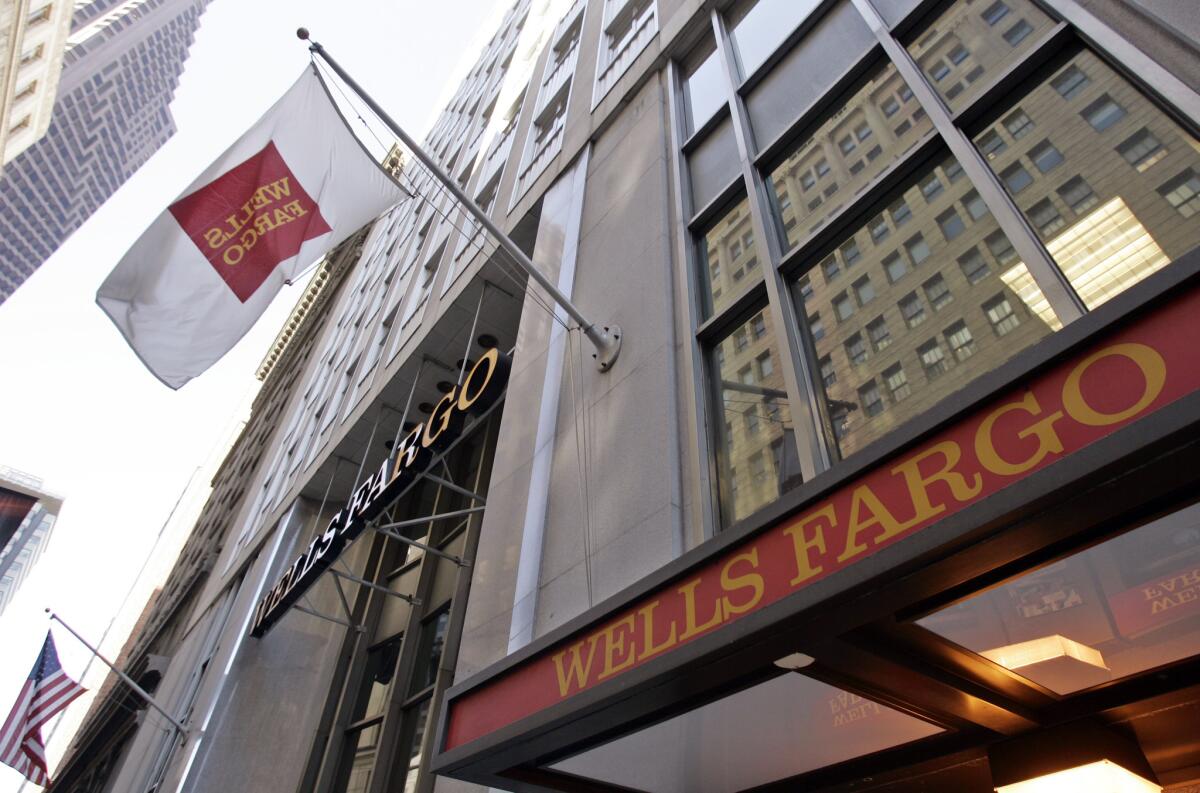Wells Fargo is paying $3 billion to settle U.S. probes of fake-accounts scandal

- Share via
Wells Fargo & Co. will pay $3 billion to settle U.S. investigations into more than a decade of widespread consumer abuses under a deal that lets the scandal-ridden bank avoid criminal charges.
The deferred-prosecution deal with the Department of Justice spares the San Francisco lender a potential criminal conviction that could create serious complications for banks, if it cooperates with continuing investigations and abides by other conditions for three years. The accord also resolves a complaint by the Securities and Exchange Commission.
Investigators found that Wells Fargo’s overly aggressive sales targets led thousands of employees to open millions of unauthorized accounts in customers’ names or foist other products on them from 2002 to 2016, often by creating false records or misappropriating their identities, the Justice Department said Friday in a statement announcing the penalties. That generated millions of dollars in fees and interest, and in some cases it damaged customers’ credit ratings.
“Our settlement with Wells Fargo, and the $3-billion criminal monetary penalty imposed on the bank, go far beyond ‘the cost of doing business,’” U.S. Atty. Andrew Murray for the Western District of North Carolina said in a statement. “They are appropriate given the staggering size, scope and duration of Wells Fargo’s illicit conduct.”
The settlement marks the bank’s largest yet from a series of scandals that claimed two chief executives, but for shareholders it’s in line with the more than $3 billion the bank set aside for legal matters in the latter half of last year as negotiations progressed. It’s another step in efforts by CEO Charles Scharf, who took over in October, to turn Wells Fargo around as he conducts a review of all operations.
Still, this is hardly the end of Wells Fargo’s legal woes. The company remains under a growth cap imposed by the Federal Reserve. Last month the Office of the Comptroller of the Currency announced civil charges against eight former senior executives, some of whom settled. And investigations into other suspected misconduct in other businesses are continuing.
The scandals in Wells Fargo’s consumer operations — first uncovered in 2013 by the Los Angeles Times — erupted in 2016, when the bank conceded that employees may have opened millions of unauthorized accounts to meet sales goals. The company’s expenses surged as new details emerged and as additional lapses and wrongdoing surfaced across business lines, including mortgages and auto lending.
Although the sales abuses have been described repeatedly in earlier investigation, the settlement announced Friday provides yet more details on the high-pressure environment that led legions of low-level employees to break the law — often costing them their own jobs when they were caught by the firm’s internal controls. Many inside the bank referred to abusive sales practices as “gaming,” according to prosecutors.
That often included misappropriating customers’ identities to open checking and savings accounts, issue debit or credit cards, or enroll people in bill-pay or remittance services, prosecutors said. Employees sometimes forged client signatures, created PINs to activate cards and moved money to simulate account funding. Some staffers even altered contact information to prevent customers from learning about their unauthorized accounts or receiving satisfaction surveys.
Senior managers were aware of the issues as early as 2002, with one internal investigator describing it as a “growing plague” two years later and another remarking that it was “spiraling out of control,” investigators found.
Yet senior leaders in the community banking division refused to change their sales model or ratchet down unrealistic targets. They later minimized the problems to higher-ups and the board, blaming the issues on rogue employees, prosecutors said.
The Justice Department said it considered Wells Fargo’s cooperation and prior settlements when deferring prosecution. The bank previously paid more than $1 billion to federal regulators for consumer mistreatment, $575 million to 50 states and the District of Columbia and $480 million for an investor class-action lawsuit.
Levitt and Schoenberg write for Bloomberg.
More to Read
Inside the business of entertainment
The Wide Shot brings you news, analysis and insights on everything from streaming wars to production — and what it all means for the future.
You may occasionally receive promotional content from the Los Angeles Times.










